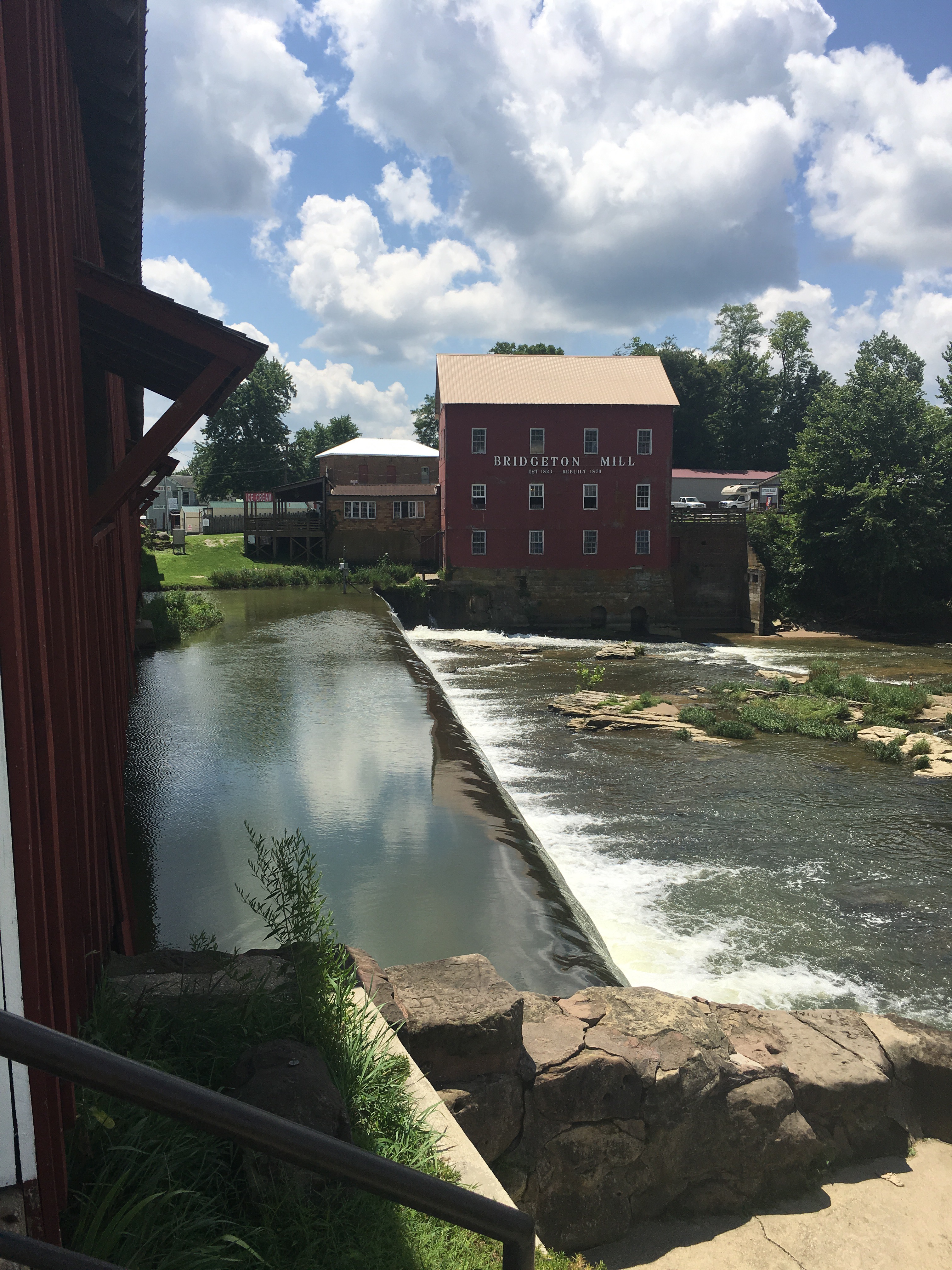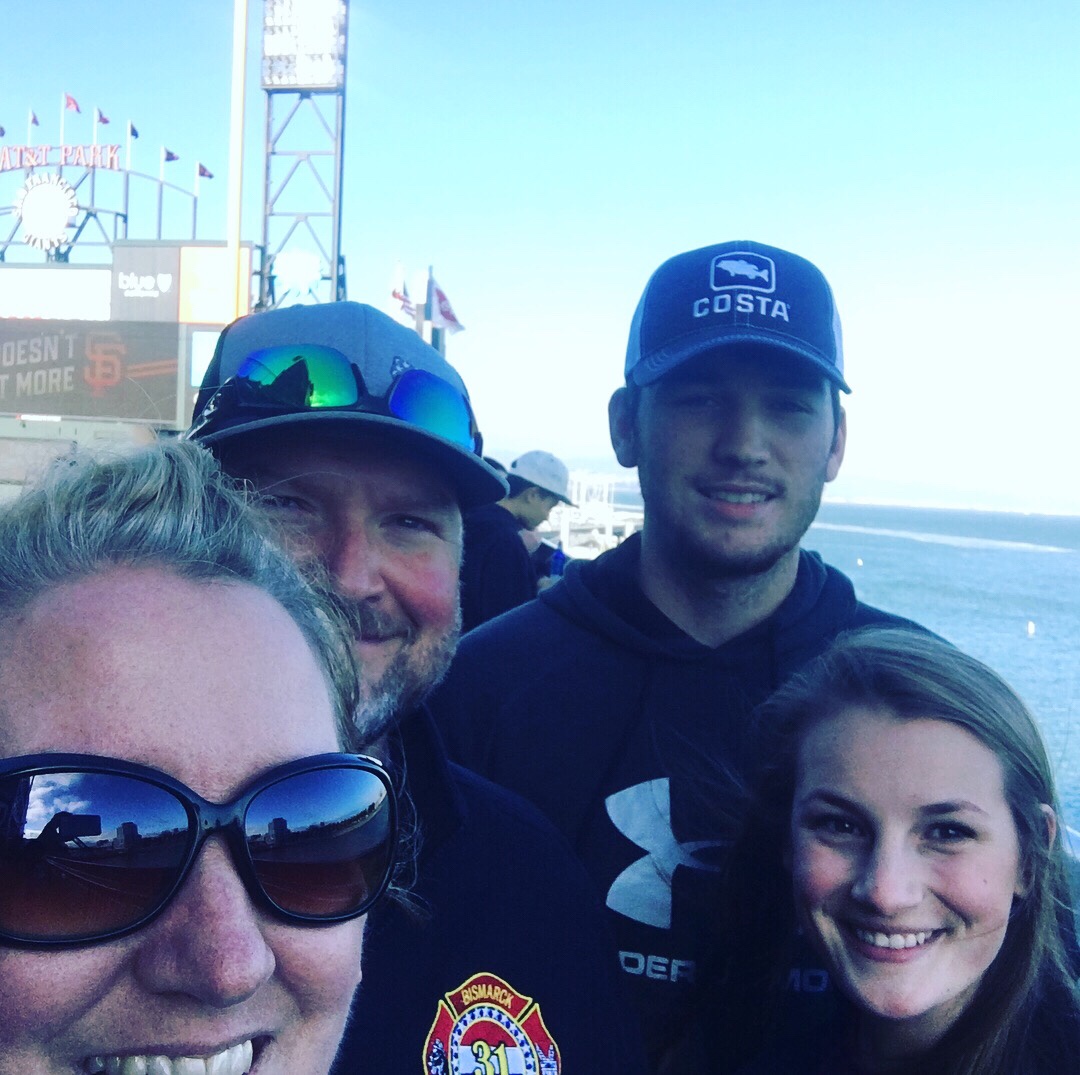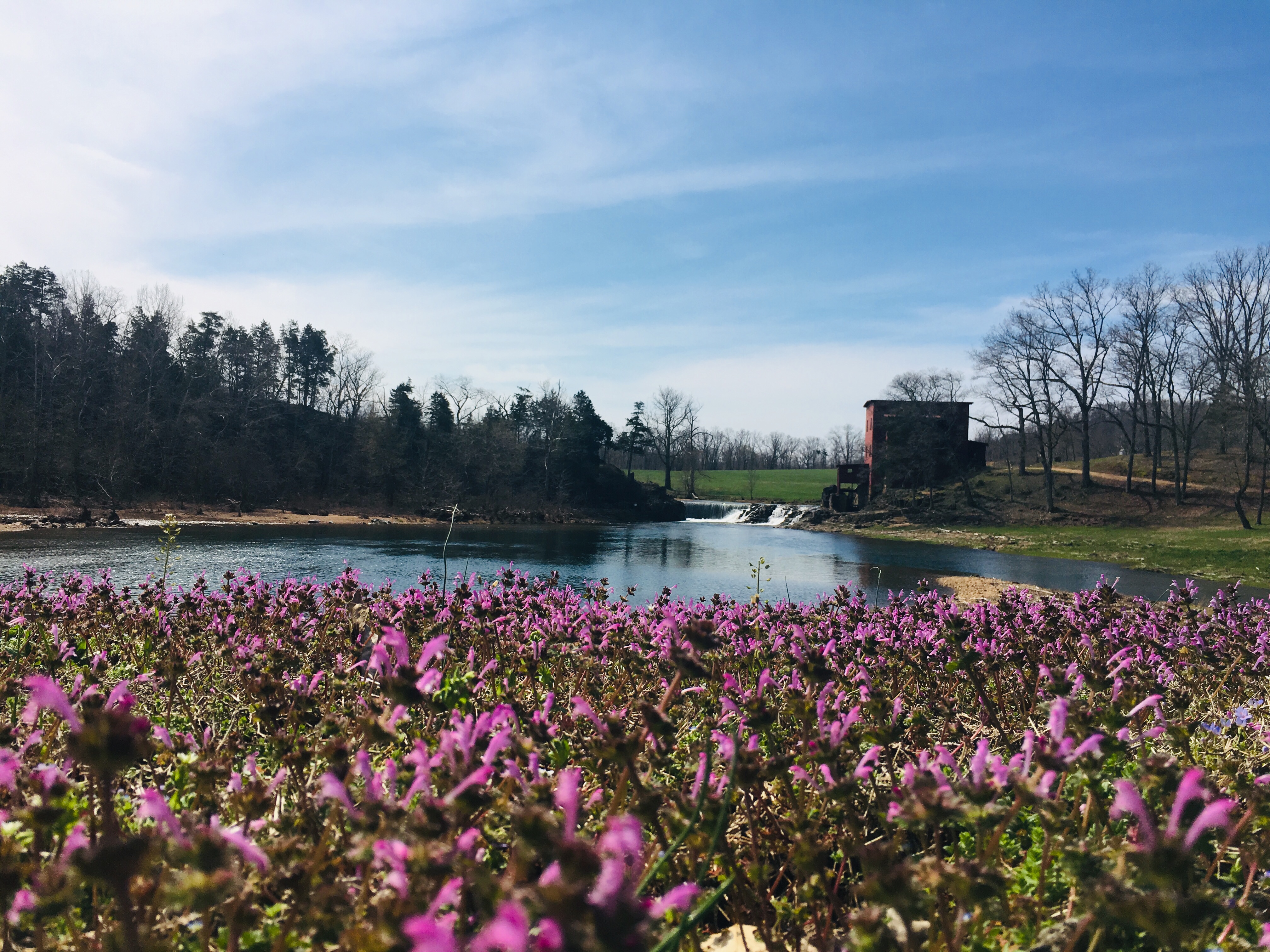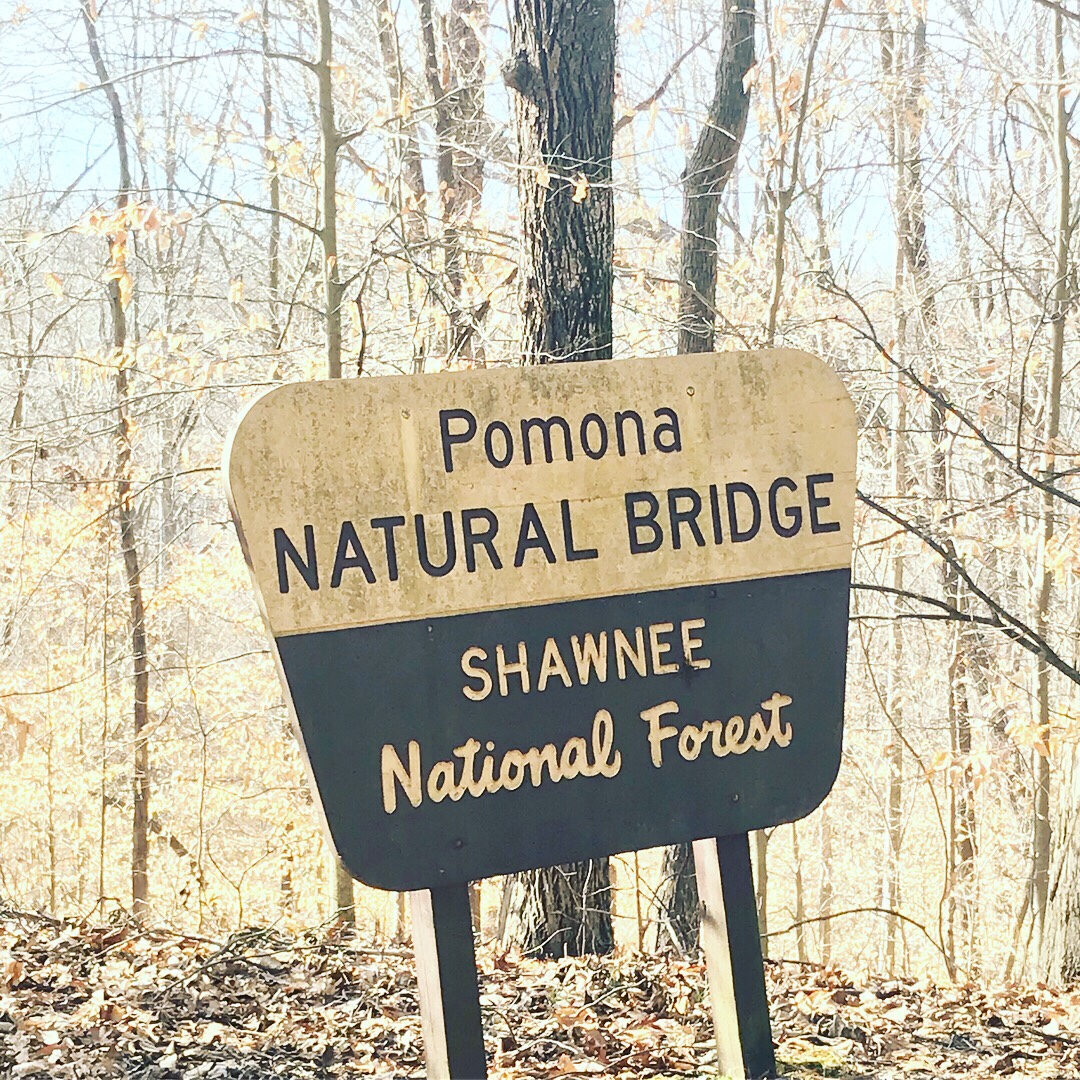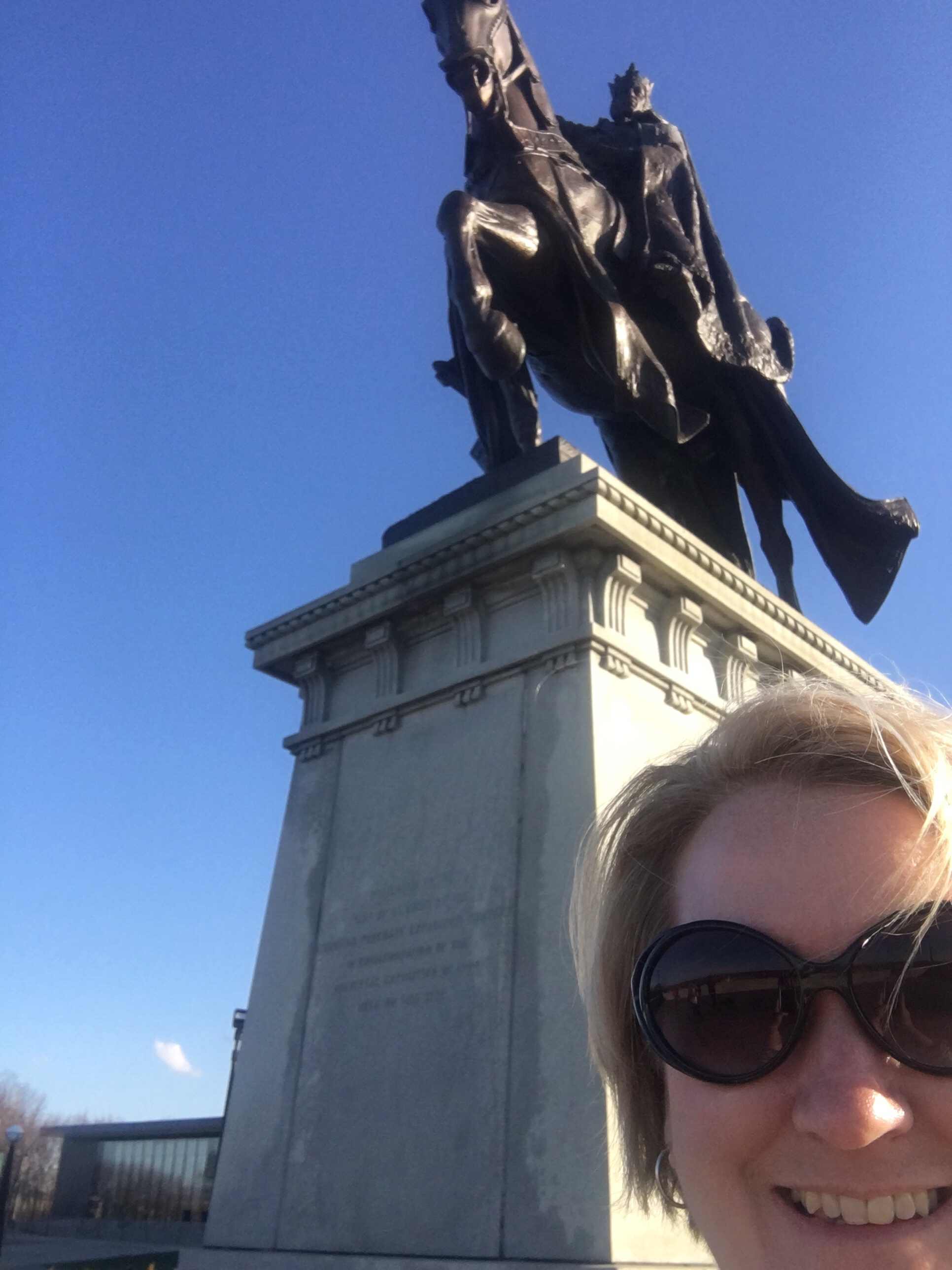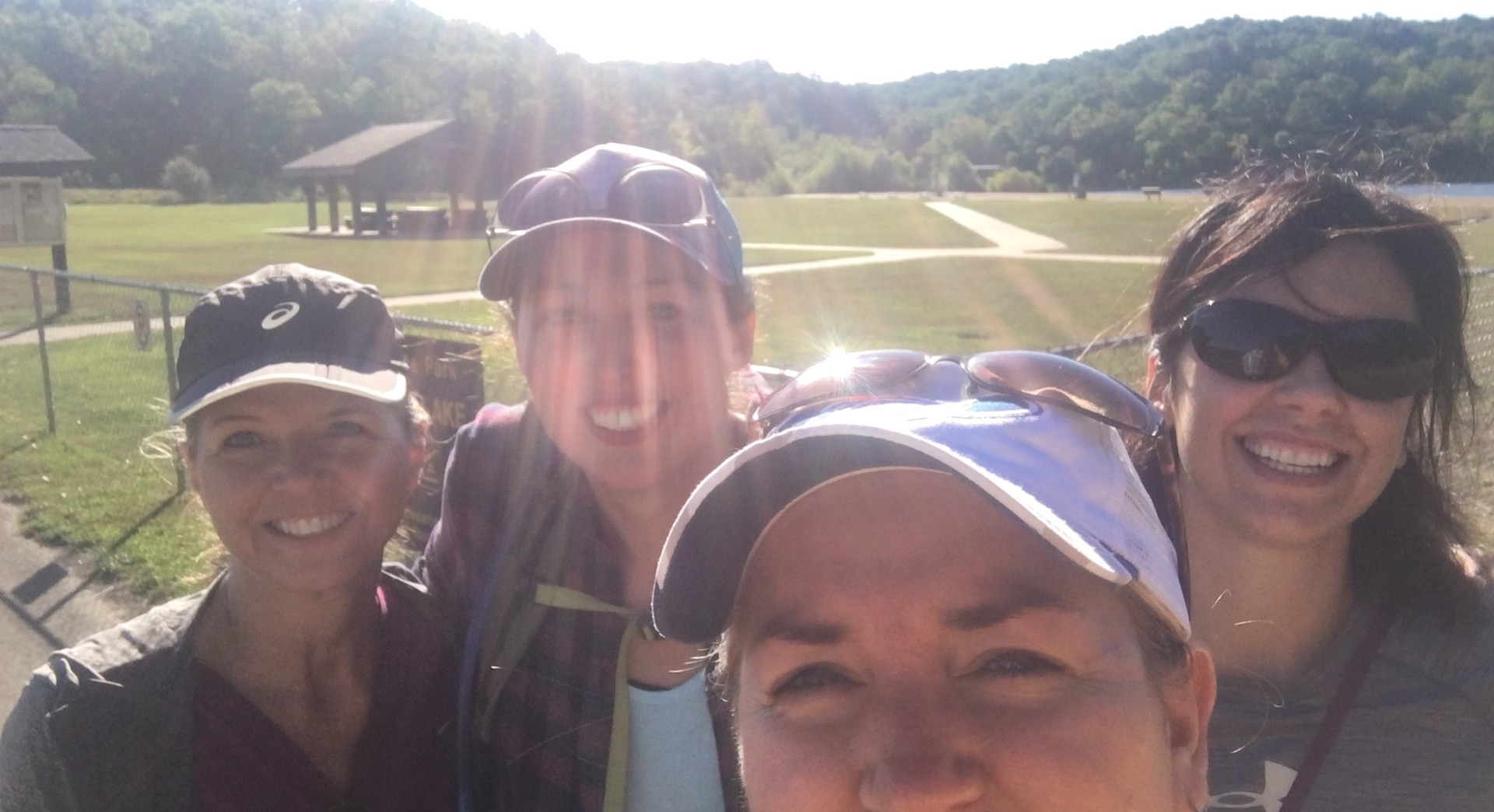1,000 Step Trail – Washington State Park

- July 7th, 2017 7:30 am 75 degrees; July 8th, 2017 4:30 pm 90 degrees
- TrailHead – near the field at the parking log at the Thun
 derbird Lodge (not noticeable at first)
derbird Lodge (not noticeable at first) - Marked -Blazed in yellow
- Length– Between 1.5- 2 miles depending on how much you venture off the path
- Time – 1 hour at a slow pace fighting spiderwebs and taking pictures
- Cost -Free
- WildLife– squirrels, green snake
- Other Notes – Spiderwebs everywhere early in the morning
Check out Washington State Park
Part One
The name is a little intimidating “1,000 Steps Trail” because who really wants to climb a 1000 steps. Are there really a 1000? I’m not sure because I didn’t channel my inner Rainman and actually count them, but there are a lot.

The book, 60 Hikes Within 60 Miles: St. Louis: Including Sullivan, Potosi, and Farmington Paperback – June 15, 2010 by rated the difficulty as easy, whereas AllTrails rated it as hard, so I wasn’t really sure what to expect. Because we were a little crunched for time and with the hot weather and longer drive than our normal “quick” hikes, we decided to try the “1000 Steps” first over the other WSP trails.
Initially the path is an easy dirt path that has very good shade from the tree cover. We passed what appeared to be dry run off areas where a noticeable amount of shale rock was lying. It was noticeable enough that I snapped a couple of pictures to share with my dad who has found his share of arrowheads.
A little ways in the steps appear to your right. The steps themselves aren’t difficult, but they climb at a steep rate. Yes, I was winded part of the way through. Katie the CF wasn’t breathing as hard as I was (which can be noted on the video clip). The stairs aren’t a straight approach, but wind their way up the bluff. Once at the top, it’s back to a nice flat footpath that had some growth around it. However this section was covered by cobwebs/spiderwebs, so much so that it slowed us down considerably. Every few feet we were stopping to clear the way. One positive, if there actually was one, is that the spiders were still attached to the webs which made them easier to see. (All of which is documented in our action-packed video.)
And we were cobweb fighing

Along the upper path is where one of the CCC (Civilian Conservation Corp) overlook shelters can be found. We stopped and took in the view overlooking Big River and its surrounding countryside. I plan on returning here in the fall and winter to enjoy the view. This is a wonderful spot for a photo op. Even try backing up a few steps to use the arch of the shelter to frame your photo.

After the overlook, the trail continues on close to the road and even opens up to more or the CCC buildings. Near one of these small openings, I spotted a small blackberry bush, where we snagged the five ripe berries as a treat.
At this point, the path starts to descend down again by using some more of the stone steps, but not quite as steep. Once at the bottom of this, we began to double back along the dirt path that we entered the trail on.
General Observations
- A lot of debris along the side of the paths that appears to be from flooding
- Some extremely large trees that we don’t normally see on other paths
- Can’t imagine all the hardwork the CCC men put into building these structures
A Few Thoughts
- I have noticed these stone structures in parks my entire life and never really thought much of how they got there. I also know very little about the CCC other than it was part of the FDR’s New Deal. As with everything, after our hike I took the time to investigate the CCC further (which you should as well, but I will blog about later).
- I have been to WSP several times and noticed the signs with the “ancient bird” on it, but honestly never really paid it much attention. No attention at all – I have just driven by the parking lot.
- As I was skimming through the book “60 Hikes,” I was completely surprised to find out that WSP has ⅔ of the state’s petroglyphs. After finding this nugget of info, we decided to visit the Petroglyph observation area. I find it amazing that these rock carvings exist and I had no clue. I also wonder how close they were to being demolished when Highway 21 was put in, or if other ones were destroyed unknowingly.
This was a perfect reminder to remain an active participant in our everyday lives – to be naturally curious about our surroundings and how one doesn’t need to to travel far from home for history to come alive.

.
Part Two
I came home and shared my pictures with my dad and Aaron. My dad knew of the petroglyphs, but was intrigued by the pictures of the shale that I had sent him. It was sort of arrowhead hunting from the comfort of his home.
Aaron was unaware of the petroglyphs and wanted to check them out. The next evening about 4:00 pm on a hot July day, we decided to take a Saturday evening drive to check them out and walk a short portion of the trail to investigate the shale more. (My dad was invited, but decided it was too hot for him. Although he did text frequently to share his thoughts on what to look for.)
We stopped at the petroglyphs first. Something I noticed this time was the mention of the National Historic Area mentioned on the information board (which I will share my insights on later).
Next we headed down to the trailhead with no intention of hiking the entire thing for two reasons: 1 – the heat, 2- Aaron’s back. But once we found the rock pile and went through it, I suggested doing the trail backwards because there are only a few steps on the descent (or so I remembered). Aaron reluctantly agreed.
Quickly into the backwards ascent, I realized there were quite a few steps here as well – just not as steep. I began to feel a bit guilty and started asking if he was “ok.”

Once we reached the CCC shelter, he was impressed with the craftsmanship above the now bricked in fireplace. Again thanks to the men of the CCC.

In the end, Aaron made it with a few harsh looks for me and a couple blackberries as a reward. (He did enjoy the Mexican dinner and pitcher of margaritas afterwards.)
We are a participant in the Amazon Services LLC Associates Program, an affiliate advertising program designed to provide a means for us to earn fees by linking to Amazon.com and affiliated sites.
Find this hike and others in 60 Hikes within 60 Miles of St. Louis
What About You?
Share your experiences or insights into the 1,000 Step Trail or Petroglphys in the comments.


